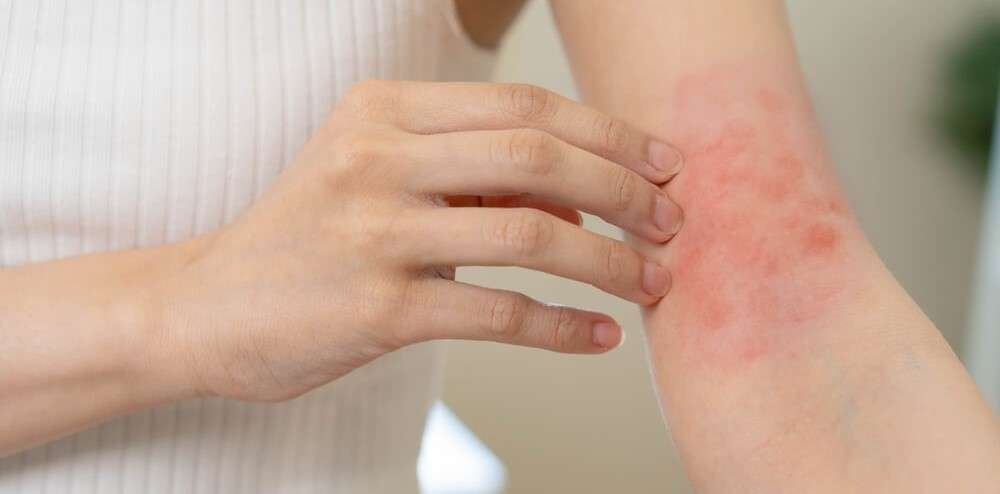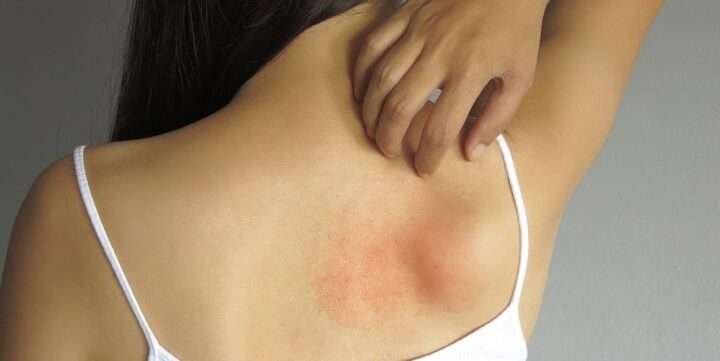
Skin irritation is uncomfortable and common. It can be a brief reaction to a new soap or a recurring problem that affects daily life. In this blog we explain what Skin irritation means, common causes, warning signs, safe self-care steps, and when to seek professional help. If you want personalised guidance, you’ll find a consultation link at the end.
What is Skin irritation?
Skin irritation is redness, itchiness, burning, or soreness of the skin caused by an external trigger or internal imbalance. It ranges from mild (temporary redness) to severe (blisters, widespread rash). The first step is to recognize the symptoms and identify possible triggers so you can treat the cause — not just the symptom.
Common causes of Skin irritation
- Contact irritants: soaps, detergents, fragrances, nickel, latex.
- Allergic contact: perfumes, preservatives, or cosmetics triggering an immune response.
- Environmental factors: sun, wind, pollution, or dry air.
- Skin conditions: eczema (atopic dermatitis), psoriasis, fungal infections.
- Insect bites or stings.
- Medications and topical creams that cause sensitivity.
- Systemic issues: hormonal changes, stress, or nutritional deficiencies.
Typical symptoms to watch for
- Redness or rash in a confined area.
- Itching, burning, or stinging sensations.
- Dry, flaky, or scaly patches.
- Blisters, oozing, or crusting in more severe reactions.
- Swelling around the affected site.
If symptoms are severe, spreading quickly, or come with fever, seek medical care promptly.
Skin irritation — Ayurvedic perspective
In Ayurveda, Skin irritation often reflects an imbalance in Pitta (heat, inflammation) or Vata (dryness) depending on the signs. Pitta-related irritation shows as burning, redness, or pus; Vata-related irritation appears as dry, cracked, itchy skin. Ayurvedic care aims to cool inflammation, strengthen skin tissue (Tvak dhatu), and restore digestion (Agni) so the skin receives proper nourishment.
Safe self-care for Skin irritation (what you can do now)
- Stop using any new product applied right before the irritation began.
- Cleanse gently with lukewarm water and a mild, fragrance-free cleanser.
- Avoid hot showers and harsh scrubbing — they strip natural oils.
- Pat skin dry and apply a fragrance-free moisturizer to prevent dryness.
- Wear loose, breathable cotton clothing to reduce friction.
- Use a cool compress for temporary relief of burning or swelling.
- Avoid scratching; keep nails short to prevent secondary infection.
These steps help most mild to moderate cases of Skin irritation and reduce the risk of worsening.

When topical care isn’t enough — get expert advice
See a doctor or dermatologist if you notice:
- Rapidly spreading rash or painful skin.
- Blisters, open sores, or signs of infection (pus, increasing redness, fever).
- Recurring irritation despite avoidance of triggers.
- Difficulty breathing, facial swelling or extensive hives (possible severe allergic reaction).
A professional can run allergy tests, skin swabs, or blood tests and prescribe the right medicine or therapy.
Ayurvedic supports and lifestyle tips
- Eat cooling, anti-inflammatory foods (fresh fruits, leafy greens) and reduce spicy, fried foods when Pitta is high.
- Stay hydrated and avoid excessive sun exposure.
- For Vata-type dryness, include healthy oils (sesame or ghee in moderation) and warm, nourishing meals.
- Consider an Ayurvedic consultation before using internal herbs or medicated oils; a practitioner will tailor treatment to your constitution.
These measures treat root causes and help prevent recurring Skin irritation.
When to get a consultation (recommended)
If your Skin irritation persists, worsens, or recurs frequently, professional assessment is the safest course. Vedic Upchar offers personalised Ayurvedic consultations to identify triggers, balance doshas, and recommend topical or internal treatments and diet changes tailored to your skin type.
👉 Book an Ayurvedic consultation with Vedic Upchar: https://vedicupchar.com/doctor-consultation/
Final note
Most cases of Skin irritation improve with early care and trigger avoidance. However, persistent or severe problems benefit from expert diagnosis and a personalised treatment plan. Don’t ignore ongoing skin issues — early action protects your skin and comfort.